Who can Apply?
The BHARATI initiative welcomes applications from a diverse range of participants committed to advancing India’s Agritech and export ecosystem. Eligible participants include :
- Agri-Food Startups : Early-stage and established startups focusing on innovative, high-value products designed for export or aiming to enter export markets.
- Technology and Service Start-ups : Companies offering export-enabling solutions and/or services, across the export-value chain and process that effectively address export challenges.
- Solution Providers for SPS Risks and Challenges : Start-ups, Individual Researchers, Innovators and Solo/Self-employed entrepreneurs that have developed solutions or have innovative ideas for solving SPS challenges impacting Indian agri-food exports.
- Exporters : APEDA-registered exporters (who meet the eligibility criteria for the BHARATI programme) seeking to innovate or expand their current product portfolios (which may be including commodity trading/exports) with new innovative and high-value products (aligned to APEDA’s definition of innovative and high-value products) in international markets.
- Farmer Producer Company (FPC) : FPC’s that are developing innovative, high-value agri-food products and/or developing solutions or have innovative ideas for solving SPS challenges impacting Indian agri-food exports.
Definition of Startups for the BHARATI Initiative
An entity shall be considered a Startup for the Above programme if it meets the following criteria:
Type of Entity:
- It must be incorporated as a private limited company (under the Companies Act, 2013), or
- A registered partnership firm (under the Indian Partnership Act, 1932), or
- A limited liability partnership (under the LLP Act, 2008).
Age of the Entity:
- The entity should not be more than 5 years old from the date of incorporation/registration.
Annual Turnover:
- The turnover of the entity should not have exceeded ₹10 crore in any of the financial years since incorporation.
Original Entity:
- The entity should not have been formed by splitting up or reconstructing an existing business.
Innovation, Development or Improvement:
- The entity must be working towards innovation, development or improvement of products or processes or services, or
- It should have a scalable business model with high potential for employment generation or wealth creation.
- Start-up Definition: All start-ups applying to the programme should meet the definition of the start-ups provided above.
- Indian Registration: All participating entities must be registered and incorporated in India under applicable laws, such as the Companies Act, 2013, and/or other relevant statutes, ensuring alignment with national regulatory frameworks.
- Individual Researcher, Innovator and Solo/Self Employed Entrepreneur: Individual Researcher, Innovators, Solo/Self-Employed entrepreneur, who are working independently and/or in collaboration with any academic and/or research institution can also apply under the Solution Providers for SPS Challenges category. They should be able to demonstrate active research or project work or MVP or prototype or an idea or innovation, which is validated and verified related to SPS risk mitigation, compliance, or innovation in agri-food exports.
- Export Focus: Participants must demonstrate a clear intent to create products or solutions specifically designed for international markets, with a focus on export-oriented agricultural and food products or technology-driven solutions or solutions for SPS risks and challenges that enhance global market competitiveness.
- MVP and Commercialized Products: Start-ups applying under the High-value and Innovative Agri-food products category and Technology Solutions for Export Challenges must have either an MVP or a commercialized product. Entities with product/solution ideas only are not eligible. Organizations and entities applying under the category of Solutions provider for SPS challenges can apply even if they have an idea and/or have published research papers also. For this category, entities with valid idea, research paper or MVP or commercialized solutions are eligible.
Participants should be focused on developing high-value and/or innovative agricultural and food products (as described above), with an emphasis on the following:
- High-Value Products: Premium offerings across APEDA priority categories that command elevated market prices due to exceptional quality, health benefits, niche market appeal, or specialized certifications (e.g., Geographical Indication (GI)-tagged, organic, and/or compliant with global quality standards such as Global GAP, ISO 22000, HACCP, USDA Organic, NPOP and other relevant certifications). These products are designed to meet the demands of discerning consumers or pecific regional markets, enhancing export profitability and competitiveness.
- Innovative Products: New-to-market products, novel product categories, or use cases created through unique applications of agri-produce, horticulture, or related inputs. This may include:
- Products developed as by-products to maximize the value of agricultural produce (e.g., utilizing agricultural waste or secondary outputs for value-added products).
- Products that extend the maximum usage of agri-produce, promoting resourc efficiency and sustainability.
- Integration of advanced technologies or processes to address export challenges such as shelf life, quality, or compliance, ensuring alignment with global market requirements.
- Organic and Sustainable Products: Products that prioritize organic production methods, sustainability, and environmental responsibility, with a strong emphasis on GI-tagged products that highlight India’s unique agricultural heritage, aligning with global demand for eco-friendly and ethically produced goods.
Technology and service providers must offer solutions that address specific export-related challenges, including but not limited to:
- Sea Protocol and Logistics: Solutions to optimize sea freight protocols, streamline supply chain logistics, and address transportation challenges for perishable goods to ensure efficient delivery to long distant international markets.
- Cold Storage and Perishability: Technologies to enhance cold chain infrastructure, IoT-based monitoring, and post-harvest management to extend shelf life and reduce post-harvest losses.
- SPS and TBT Compliance: Tools to ensure compliance with World Trade Organization (WTO) Sanitary and Phytosanitary (SPS) and Technical Barriers to Trade (TBT) standards, including quality control, certification processes, and documentation for global regulatory adherence.
- Market Access: Digital marketplaces, traceability solutions, and branding strategies to overcome barriers to international market entry and strengthen global presence, including solutions for understanding market-specific regulatory and consumer requirements.
- New Product Development: Innovations in product formulation, processing, or packaging to create export-ready products that meet global standards, including advanced packaging solutions to ensure product safety, sustainability, and compliance with international regulations.
- Monitoring, Quality Control, and Compliance: Technologies like blockchain for traceability, IoT for real-time monitoring, and digitization of non-tariff barriers (NTB) to ensure quality assurance and regulatory compliance.
- Market Intelligence: Tools and analytics to predict international market demand, optimize supply chain planning, and manage inventory to align with global market trends and consumer preferences.
- Finance and Fintech Solutions for Exports: Agri-fintech solutions, including export credit facilitation, forex management, risk mitigation tools, and financial platforms to support exporters in managing cash flow, securing trade finance, and navigating international payment systems.
Start-ups, individual researchers, innovators, and solo/self-employed entrepreneurs applying under the Solution Providers for SPS Challenges category of the BHARATI Initiative must have developed innovative solutions or possess validated, research-backed ideas or recognized research papers that directly address Sanitary and Phytosanitary (SPS) risks and compliance barriers impacting Indian agri-food exports. These solutions or ideas should target specific SPS challenges caused by pests, pathogens, or contaminants in the following key commodities:
Commodities and Specific SPS Challenges

Mango
- Spongy Tissue
- Stone Weevil
- Fruit Fly (Bactrocera dorsalis)

Groundnut
- Aflatoxin Contamination

Pomegranate
- Anthracnose
- Fusarium Wilt

Buffalo Meat
- Foot and Mouth Disease
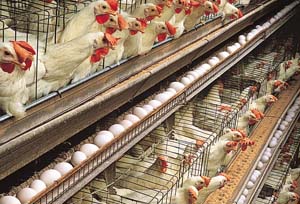
Poultry Products
- Newcastle Disease / Ranikhet
- Avian Influenza
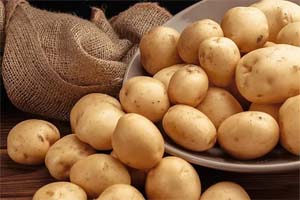
Potato
- Tuber Moth
- Phytophthora
- Ralstonia (Brown Rot)
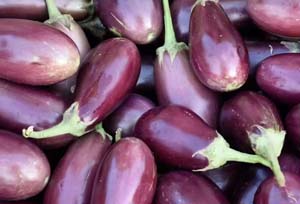
Brinjal (Eggplant)
- Fruit Borer
- Silverleaf Whitefly

Dairy Products
- Brucellosis

Grapes
- Downy Mildew

Honey
- Antibiotic Residues
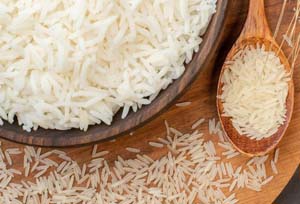
Basmati Rice
- Bacterial Blight (Xanthomonas oryzae)
- Bakanae Disease (Fusarium fujikuroi)
- Pesticide Residues exceeding MRLs (e.g., Tricyclazole, Carbendazim, Acephate, Buprofezin)

Rice / Cereals
- Khapra Beetle (Trogoderma granarium)

Banana
- Panama Wilt
- Sigatoka

Green Beans
- Lepidoptera Pests
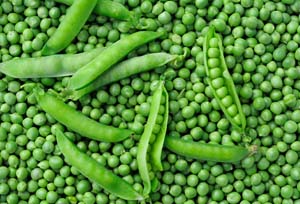
Green Peas
- Malachite Green Adulteration